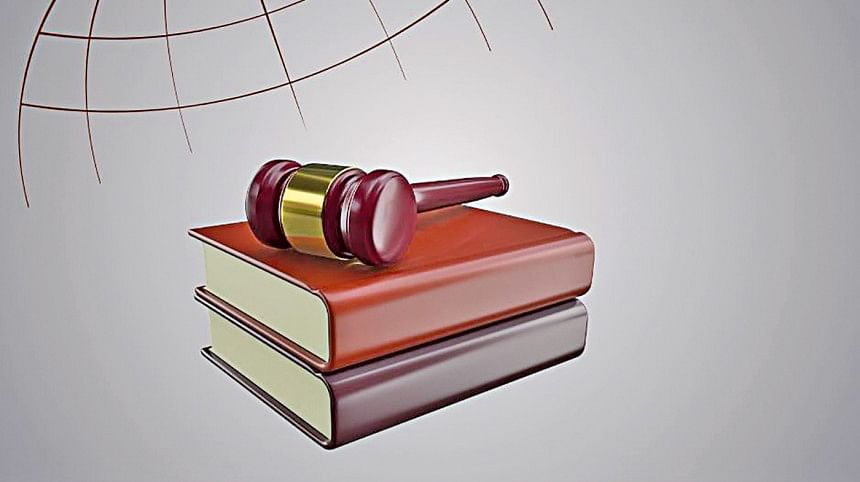Challenges and prospects of enforcing foreign decrees in Bangladesh

In today's globalised world order, cross-border transactions and consequent disputes have been a common phenomenon. Bangladesh as a developing country has witnessed the same in recent years. The disputes that ensue from cross-border transactions are dealt with in foreign courts. The decree thus awarded can then be executed in the native country of the parties. The Code of Civil Procedure 1908 (CPC) defines foreign court and foreign decree in sections 2(5) and 2(6), respectively. Essentially, foreign decree means a decree of a foreign court and a foreign court means a court established outside the jurisdiction of Bangladesh. This article delves into the challenges and prospects of enforcing foreign court decrees in Bangladesh taking into account the legal framework and the practical realities of the country.
The recognition of foreign decree is essential for fostering cross-border trade and investment and protecting the rights of foreign investors in Bangladesh. Recognition of foreign decree contributes to building confidence in foreign traders and acts as a deterrent to borrowers who attempt to dishonor their obligations towards the creditors or evade the jurisdiction upon default.
Bangladesh lacks an exhaustive legislation on the enforcement of foreign decrees. At present the process is governed by the CPC. Sections 13, 14, and 44A of the CPC deal with the process of execution of foreign decrees in Bangladesh. Section 13 points out six exceptions when foreign decrees will not be conclusive. Additionally, section 14 ensures the presumption of competency of the foreign courts unless the contrary appears on the records. Section 44A stipulates the process of executing a decree of a reciprocating country in Bangladesh if it does not fall within the exceptions specified in section 13.
The rule of conclusiveness of foreign decree is founded upon the principle of sanctity of decrees. Where a foreign court of competent jurisdiction has adjudicated upon a claim, a legal obligation arises to satisfy that claim in the country where the decree needs to be enforced. The general rule is that the native court shall presume that the decree is awarded by a court of competent jurisdiction upon the production of a certified copy of a foreign decree. However, this presumption must follow two pre-conditions. First, the decree is pronounced by a superior court of the reciprocating countries of Bangladesh. Hence, the foreign decree of non-reciprocating countries is not executable in Bangladesh. Before enforcing a foreign decree, a reciprocating agreement with that country is required.
Next, the judgment must survive the exceptions outlined in section 13 of the Code. If the judgment fulfills these two preconditions, then the executing court shall presume that the judgment is given by a court of competent jurisdiction and it shall be executable in Bangladesh. The foreign decree will fall into res judicata under section 11 of CPC if the decree has been previously awarded by a Bangladeshi court.
Generally, the recognition and enforcement of foreign decrees takes place in two ways. First, by instituting an execution proceeding as mentioned in section 44A of the CPC. The party enforcing the foreign decree has to file a suit in line with the subject matter in the Court of District Judge for the execution of the foreign decree and submit a certified copy of the decree in support of an application for recognition and enforcement of a foreign decree. Second, by instituting a fresh suit on such foreign decree. Where a decree is not of a superior court of a reciprocating territory, a suit has to be instituted in a court of competent jurisdiction in Bangladesh.
The general principle of law is that any decision of a foreign court, tribunal, or any other quasi-judicial authority is not enforceable in a country unless such decision is embodied in a decree of a court of that country. Moreover, the limitation period for enforcing the foreign judgment has been specified in the Limitation Act 1908. Article 117 of the First Schedule of the Act stipulates that an action to enforce a foreign decree shall commence within six years of the date on which the foreign decree was pronounced. The decree will be executed per section 51 of the Code.
Inadequate legal framework and lack of clarity pose a great challenge towards enforcing foreign decrees in Bangladesh. Bangladesh should enact a specific legislation on this matter similar to the Foreign Judgment Enforcement Act 1933 of the UK. There are some practical difficulties too. Excessive delays, bureaucratic red tapism, and corruption beat the process and hinder efficient and timely enforcement of foreign decrees. Moreover, no specialised courts or tribunals exist on this matter in Bangladesh. The unavailability of the list of reciprocating countries of Bangladesh is another glaring example of complete disregard of the responsible authority.
In sum, the recognition of foreign decree is essential for fostering cross-border trade and investment and protecting the rights of foreign investors in Bangladesh. Recognition of foreign decree contributes to building confidence in foreign traders and acts as a deterrent to borrowers who attempt to dishonor their obligations towards the creditors or evade the jurisdiction upon default. Despite the challenges, there is still room for improvement. By reforming the legal framework, establishing specialised courts, and advancing international cooperation, Bangladesh can overcome the obstacles and create an effective and efficient system for enforcing foreign decrees.
The writer is Advocate, Supreme Court of Bangladesh.

 For all latest news, follow The Daily Star's Google News channel.
For all latest news, follow The Daily Star's Google News channel. 



Comments